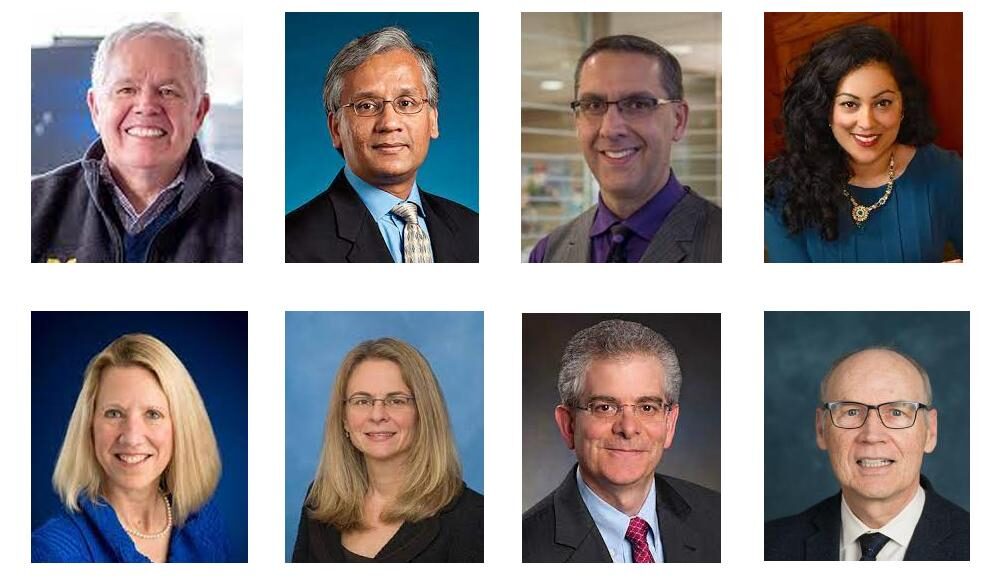
Faculty advisors for the Ideas lab focused on vaccine equity: Matthew Boulton, Ravi Anupindi, Brian Zikmund-Fisher, Shobita Parthasarathy, Diane Harper, Lisa Prosser, John Ayanian, Joseph Kolars
University of Michigan faculty members with an interest in global vaccine equity will have the opportunity to participate in an Ideas Lab workshop intended to spark innovative, multidisciplinary solutions.
More Info
The U-M Center for Global Health Equity has allocated up to $3 million in funding for transformative ideas developed through the workshop, to take place over three days early next year.
The application deadline is Nov. 30.
“COVID-19 has not only emphasized the complex challenges of ensuring equitable vaccine access globally, but it has exposed the true costs — in health and economic terms — associated with the inequitable status quo,” said Joseph Kolars, senior associate dean for education and global initiatives at the Medical School, and founding director of the Center for Global Health Equity.
“We believe this represents exactly the type of challenge for which our center was created: problems that cut across both disciplines and international borders,” Kolars said.
The Global Vaccine Equity program and Ideas Lab represent one of the center’s first major initiatives since launching late in 2020. Workshop leaders will gather 25-30 selected U-M faculty members from various disciplines and develop novel, collaborative approaches to vaccine equity in low-income countries.
Faculty groups with the most promising ideas will be invited to co-design their initiatives with relevant global partners using seed funding from the center.
Facilitated by Knowinnovation, an experienced organization that has run similar events at the National Science Foundation, NASA and U-M, the Ideas Lab will run Feb. 28- March 2, 2022. It is open to U-M faculty from all three campuses, and early-career faculty are especially encouraged to apply. Prior experience in vaccine-related research is not required.
Helping to guide participants through the Ideas Lab will be eight faculty advisers from a range of disciplines, including public health, public policy, business, medicine and more.
The panel of advisers will work with participants both during and after the event, helping to shape and strengthen the proposals that emerge. Among them is Matthew Boulton, senior associate dean for global public health, whose own research portfolio includes projects on childhood vaccination and the use of immunization information system data and systems development.
“To be impactful, vaccine equity solutions must address not only the vaccines themselves, but also social structures, economics, and more,” Boulton said. “I’m very enthused about the project and the advisory team we’ve assembled to ensure all of these vital perspectives are considered.”


